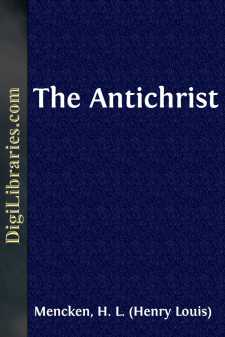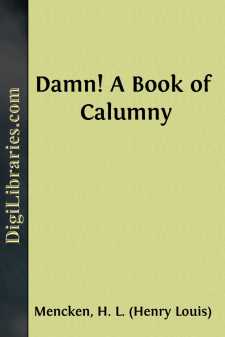Categories
- Antiques & Collectibles 13
- Architecture 36
- Art 48
- Bibles 22
- Biography & Autobiography 813
- Body, Mind & Spirit 142
- Business & Economics 28
- Children's Books 15
- Children's Fiction 12
- Computers 4
- Cooking 94
- Crafts & Hobbies 4
- Drama 346
- Education 46
- Family & Relationships 57
- Fiction 11828
- Games 19
- Gardening 17
- Health & Fitness 34
- History 1377
- House & Home 1
- Humor 147
- Juvenile Fiction 1873
- Juvenile Nonfiction 202
- Language Arts & Disciplines 88
- Law 16
- Literary Collections 686
- Literary Criticism 179
- Mathematics 13
- Medical 41
- Music 40
- Nature 179
- Non-Classifiable 1768
- Performing Arts 7
- Periodicals 1453
- Philosophy 64
- Photography 2
- Poetry 896
- Political Science 203
- Psychology 42
- Reference 154
- Religion 513
- Science 126
- Self-Help 84
- Social Science 81
- Sports & Recreation 34
- Study Aids 3
- Technology & Engineering 59
- Transportation 23
- Travel 463
- True Crime 29
In Defense of Women
Categories:
Description:
Excerpt
1. The Maternal Instinct
A man's women folk, whatever their outward show of respect for his merit and authority, always regard him secretly as an ass, and with something akin to pity. His most gaudy sayings and doings seldom deceive them; they see the actual man within, and know him for a shallow and pathetic fellow. In this fact, perhaps, lies one of the best proofs of feminine intelligence, or, as the common phrase makes it, feminine intuition. The mark of that so-called intuition is simply a sharp and accurate perception of reality, an habitual immunity to emotional enchantment, a relentless capacity for distinguishing clearly between the appearance and the substance. The appearance, in the normal family circle, is a hero, magnifico, a demigod. The substance is a poor mountebank.
The proverb that no man is a hero to his valet is obviously of masculine manufacture. It is both insincere and untrue: insincere because it merely masks the egotistic doctrine that he is potentially a hero to everyone else, and untrue because a valet, being a fourth-rate man himself, is likely to be the last person in the world to penetrate his master's charlatanry. Who ever heard of valet who didn't envy his master wholeheartedly? who wouldn't willingly change places with his master? who didn't secretly wish that he was his master? A man's wife labours under no such naive folly. She may envy her husband, true enough, certain of his more soothing prerogatives and sentimentalities. She may envy him his masculine liberty of movement and occupation, his impenetrable complacency, his peasant-like delight in petty vices, his capacity for hiding the harsh face of reality behind the cloak of romanticism, his general innocence and childishness. But she never envies him his puerile ego; she never envies him his shoddy and preposterous soul.
This shrewd perception of masculine bombast and make-believe, this acute understanding of man as the eternal tragic comedian, is at the bottom of that compassionate irony which paces under the name of the maternal instinct. A woman wishes to mother a man simply because she sees into his helplessness, his need of an amiable environment, his touching self delusion. That ironical note is not only daily apparent in real life; it sets the whole tone of feminine fiction. The woman novelist, if she be skillful enough to arise out of mere imitation into genuine self-expression, never takes her heroes quite seriously. From the day of George Sand to the day of Selma Lagerlof she has always got into her character study a touch of superior aloofness, of ill-concealed derision. I can't recall a single masculine figure created by a woman who is not, at bottom, a booby.
That is should still be necessary, at this late stage in the senility of the human race to argue that women have a fine and fluent intelligence is surely an eloquent proof of the defective observation, incurable prejudice, and general imbecility of their lords and masters. One finds very few professors of the subject, even among admitted feminists, approaching the fact as obvious; practically all of them think it necessary to bring up a vast mass of evidence to establish what should be an axiom....







